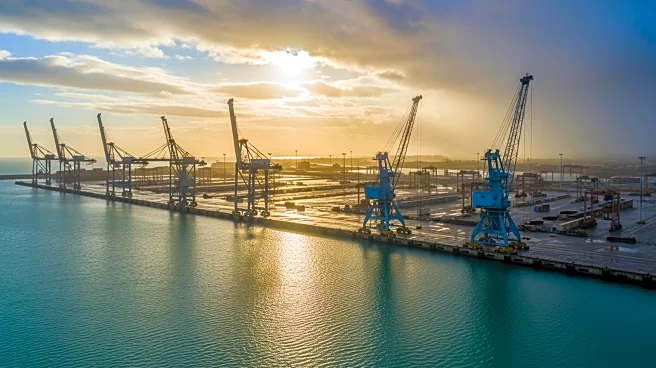What is the story about?
What's Happening?
Pensana, a London-listed emerging rare earths miner, has noted significant market developments as prices for neodymium and praseodymium (NdPr) rise. This increase follows the U.S. government's agreement with MP Materials, setting a price of $110,000 per ton for NdPr, and China's decision to ban stockpiling of NdPr metal. Pensana is advancing the construction of the Longonjo rare earths mine in Angola. The company has reported increased interest from larger institutional investors in the U.S. and other regions, seeking meetings and more information about companies in the rare earth sector. According to the Financial Times, China has warned foreign companies against hoarding rare earths, as concerns over Beijing's export restrictions have heightened demand for these metals, which are crucial for various technologies.
Why It's Important?
The rise in NdPr prices and China's export restrictions have significant implications for industries reliant on rare earth elements, such as technology and automotive sectors. These metals are essential for manufacturing electric motors and other critical technologies. The U.S. government's pricing agreement with MP Materials reflects efforts to stabilize supply chains and reduce dependency on Chinese exports. Companies like Pensana stand to benefit from increased investor interest and potential market opportunities as global demand for rare earths grows. However, the geopolitical tensions between the U.S. and China could lead to further supply chain disruptions, impacting industries and economies worldwide.
What's Next?
As Pensana progresses with its Longonjo mine construction, it may attract more institutional investors seeking to capitalize on the rising demand for rare earths. The U.S. and other countries might explore alternative sources and partnerships to secure rare earth supplies, potentially leading to new mining projects and investments. China's export policies could continue to influence global market dynamics, prompting companies to adjust their strategies to mitigate risks associated with supply shortages.
Beyond the Headlines
The developments in the rare earth market highlight the strategic importance of these materials in global technology and defense sectors. Ethical and environmental considerations may arise as countries and companies seek to expand mining operations to meet demand. The geopolitical landscape surrounding rare earths could lead to long-term shifts in trade policies and international relations, as nations vie for control over these critical resources.















